How to remove bitterness from eggplants before frying: 7 ways
Before cooking eggplant, it is often necessary to remove the bitterness from eggplants before frying - after all, the freshest young fruits do not always end up in our grocery basket. There are several methods that housewives and professional chefs use. We have selected 7 of the most effective ones for you.
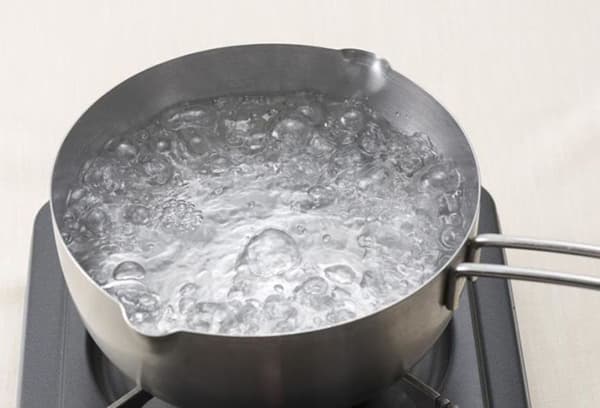
Method 1 - using boiling water
Fresh eggplants grown on your own plot with sufficient watering and good care do not need to be processed before frying. You just need to wash and cut them. But if the vegetables were bought at the market or supermarket, there is a chance that they already have a bitter taste. It is concentrated in the peel and pulp while the eggplant is being transported and lying on the shelf.
To rid a product of bitterness using boiling water, you need to:
- cut the pulp into cubes;
- place in a colander;
- Dip into boiling salted water for 2 minutes;
- remove from the water and let it drain;
- then cook according to the recipe.
Boiling water helps remove the taste very quickly, but this technique is not suitable for all recipes. It is recommended to use it only for those dishes in which the shape of the cut is not particularly important. There is no need to prepare vegetables in advance in this way - such processing is suitable immediately before cooking.
Method 2 - in salt water
You can soak eggplants in salt whole or in pieces.To prepare a saline solution, use 1 liter of cold drinking water and 1 tablespoon of salt.
It takes at least two hours for the bitterness to leave the whole fruit. It goes away from the pieces in about 30 minutes.
How to do this correctly?
- Wash eggplants well before cooking.
- Each is cut into round or longitudinal slices, cubes or in another way specified in the recipe.
- Place in a bowl of salted water.
- Press down from above with pressure so that they do not float up.
- Then rinse with fresh water and place on a towel to remove excess moisture.
Method 3 – in milk
You can soak bitter vegetables, cut into pieces, not only in salt water, but also in milk. The technique is very similar to the previous one:
- the vegetable is washed and cut as needed;
- place in a container with milk (no need to add salt);
- press down from above with pressure so that they do not float up;
- after 30-40 minutes, rinse with running water and dry on a towel.
Method 4 - by removing seeds
There is a version that it is the eggplant seeds that are bitter, because their shape resembles pepper seeds.
When there is no time for soaking, cooks remove the seeds:
- the vegetable is washed well;
- cut lengthwise with a sharp knife;
- scrape out the seeds with a spoon (as far as possible);
- rinse and dry with paper towels.
Method 5 - by removing the peel
If bitterness accumulates in the peel, it must be removed. To do this, be sure to wash the vegetables, and then remove the shell with a sharp thin knife or vegetable peeler. However, stripped eggplants are not suitable for all recipes.
You can remove the peel not completely, but in strips. This method is suitable for preservation. Striped eggplants look impressive in a jar.Before canning, they are still soaked in salted water for about half an hour.

Method 6 – dry
If you don’t have the desire or time to soak vegetables, the bitterness can be removed with salt. It is not distributed in water, but directly on eggplant slices. For this:
- Ripe vegetables are washed and cut into pieces;
- Add salt to a flat container or glass board and place slices on top;
- their surface is also sprinkled with salt;
- When the juice appears on the cut, the vegetables are ready for cooking - they are rinsed or wiped with a paper towel.
For this case, it is better to use coarse sea or rock salt. Small ones can be completely absorbed into the pulp and make the dish over-salted.
Method 7 - in the freezer
For preparing “overseas eggplant” caviar, the method of removing bitterness using cold is well suited. It is used when there is time to spare, and vegetables do not necessarily need to retain their shape during heat treatment. If necessary, wash the eggplants, peel them, then cut them into pieces, put them in a plastic bag and put them in the freezer for at least 3-4 hours. After removing from the freezer, the vegetables are defrosted naturally, and then pressed to remove excess liquid. The bitterness goes away along with it.
Delicious seasonal vegetables such as eggplants are fried in slices, baked, or prepared as stews or caviar. To prevent them from becoming bitter, it is better to process them before cooking. Now you can do this using one of seven simple and effective ways.

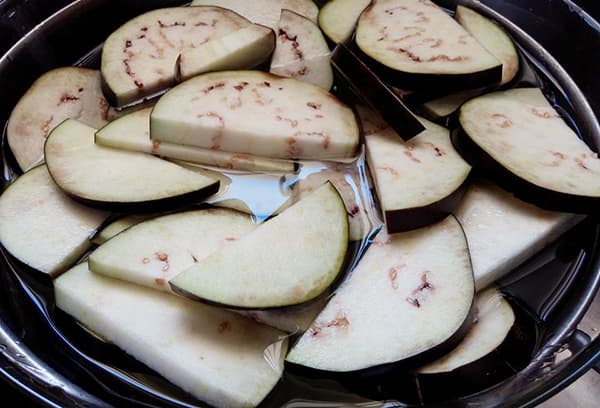

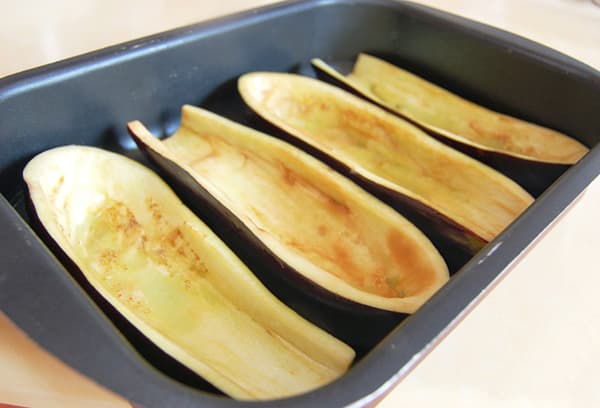
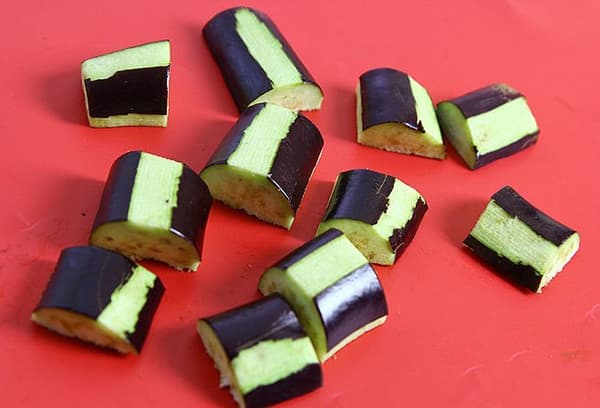
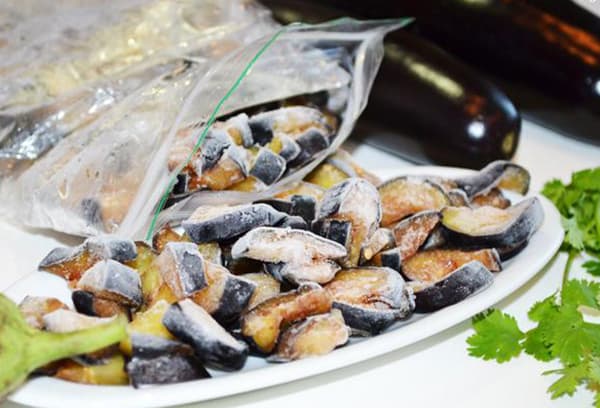
I liked the dry method the most. I just sprinkled the eggplants well with salt and then rinsed them. And no bitterness.